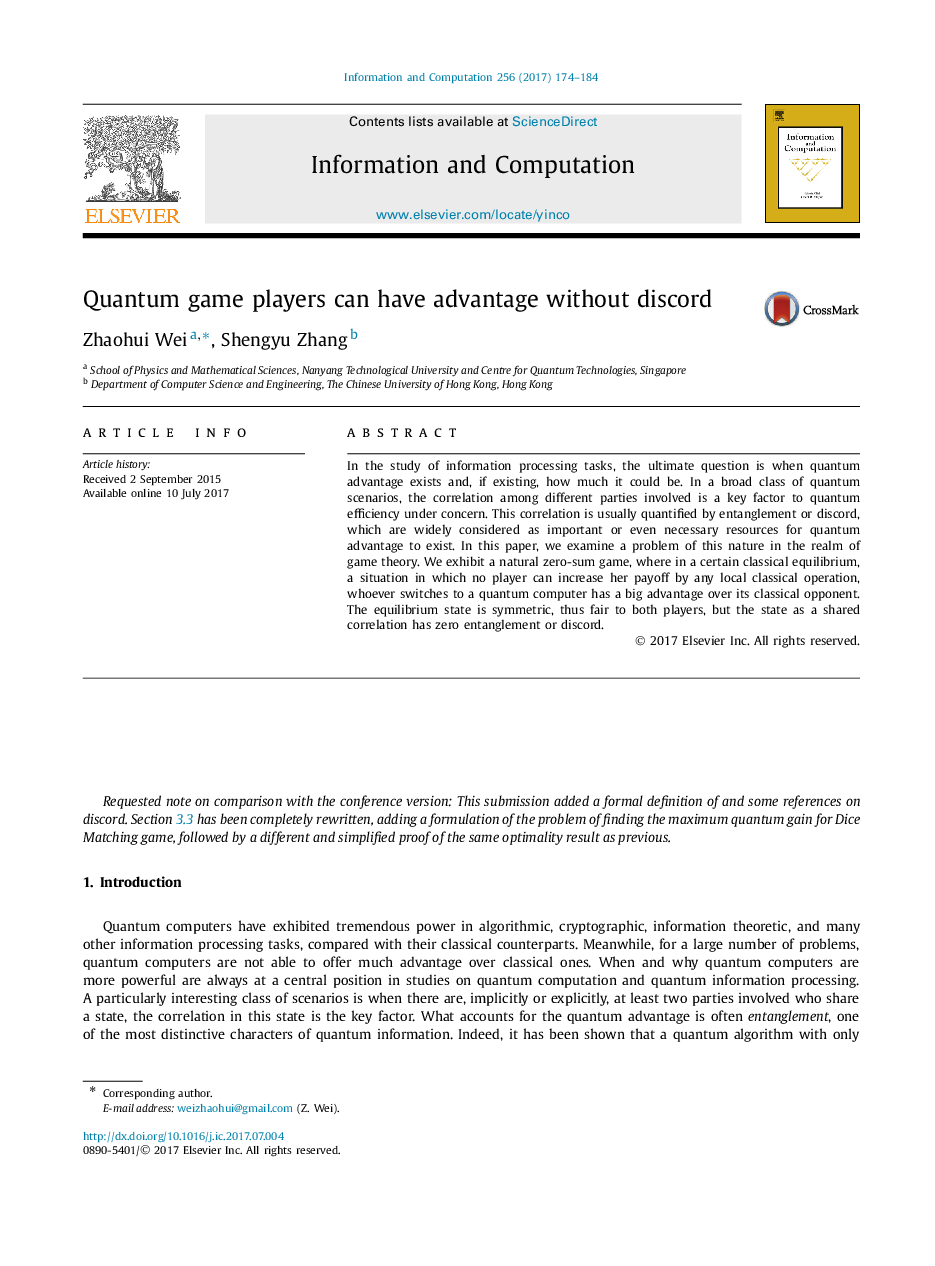| Article ID | Journal | Published Year | Pages | File Type |
|---|---|---|---|---|
| 4950584 | Information and Computation | 2017 | 11 Pages |
Abstract
In the study of information processing tasks, the ultimate question is when quantum advantage exists and, if existing, how much it could be. In a broad class of quantum scenarios, the correlation among different parties involved is a key factor to quantum efficiency under concern. This correlation is usually quantified by entanglement or discord, which are widely considered as important or even necessary resources for quantum advantage to exist. In this paper, we examine a problem of this nature in the realm of game theory. We exhibit a natural zero-sum game, where in a certain classical equilibrium, a situation in which no player can increase her payoff by any local classical operation, whoever switches to a quantum computer has a big advantage over its classical opponent. The equilibrium state is symmetric, thus fair to both players, but the state as a shared correlation has zero entanglement or discord.
Related Topics
Physical Sciences and Engineering
Computer Science
Computational Theory and Mathematics
Authors
Zhaohui Wei, Shengyu Zhang,
